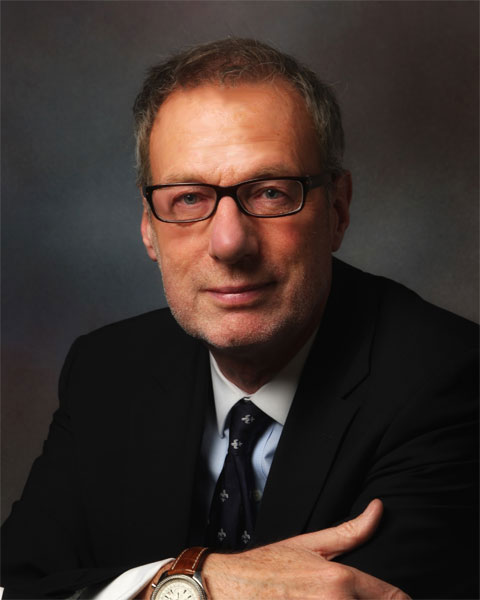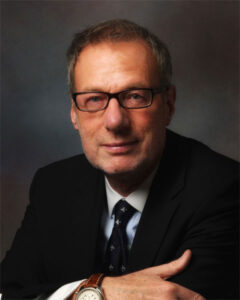The Role of Language in Paediatric Hypnotherapy
Vocaboly: Paul, thank you for taking the time to speak with us today. As one of the pioneers of paediatric hypnotherapy in the UK, can you tell us how you became involved in this field?
Paul White: It is a pleasure to be here. Language in Paediatric Hypnotherapy has been central to my journey in this field, shaping the way I approach treatment and communicate with children.
My journey into paediatric hypnotherapy was, in many ways, a natural evolution of my work in hypnotherapy and my deep fascination with the power of language. I have been practising hypnotherapy at the Surrey Institute of Clinical Hypnotherapy in Wallington, Surrey for over 20 years, specialising in hypnotherapy for children and problem behaviours.

During that time I also served as the chairman of the National Council for Hypnotherapy, which later awarded me the honorary title of Emeritus Chairman following my tenure as chairman.
From early on, I recognised that children and young people respond to hypnotherapy in a way that is fundamentally different from adults. They are naturally imaginative, open to suggestion and unencumbered by the skepticism that often hinders therapeutic progress in adults. Over the past 25 years, I have dedicated my career to refining techniques that harness these innate qualities, ensuring that hypnotherapy is both effective and accessible for younger clients. This dedication ultimately led to the formation of The International Society of Paediatric Hypnotherapists (TISPH), where we focus on providing high-quality training and connecting parents with suitably qualified professionals.
Children’s imagination is the golden thread to therapeutic change, but it is also often the root of behavioural and psychological difficulties.
How Language in Paediatric Hypnotherapy Shapes Behaviour
Vocaboly: One of the key themes we are exploring is the role of language in therapy. How does your approach to language differ when working with children compared to adults?
Paul White: Language is the cornerstone of all therapeutic work, but when working with children, it must be wielded with even greater precision and care. Language in Paediatric Hypnotherapy plays a crucial role in shaping a child’s perception and guiding behavioural change. With adults, one can employ complex metaphors and layered meaning, allowing for deeper cognitive engagement. However, with children, language must be more direct yet equally profound.
Children’s imagination is the golden thread to therapeutic change, but it is also often the root of behavioural and psychological difficulties. Many of the feelings they experience stem from past events, which they visualise and interpret through self-talk. When children recall an event visually, it triggers an emotional response that they then explain to themselves through language. Because they rarely question these internal dialogues, their behaviour often follows accordingly. My role as a therapist is to help them question these words, as language in paediatric hypnotherapy provides a framework for guiding children to reinterpret their experiences in a more positive and constructive way.
For instance, when working with a child experiencing anxiety, rather than discussing abstract concepts such as resilience or emotional regulation, I might frame it within a story or a game. A child who fears the dark may not be receptive to a rational explanation of why darkness is harmless, but they will eagerly embrace the idea of being a brave adventurer navigating a world of shadows, where each step forward makes them stronger. By aligning language with their natural modes of understanding, we make the therapy engaging and effective.
Interweaving Deep Structure Language in Paediatric Hypnotherapy
Vocaboly: That is fascinating. Could you talk about how you use deep structure language in your therapy sessions, and why it is so effective?
Paul White: Deep structure language is essential in hypnotherapy, particularly when working with children. At its core, deep structure language refers to the underlying meaning and intent behind the words, rather than just the surface-level content. Children process language in a way that is fluid and imaginative, which allows them to integrate suggestions at a subconscious level much more readily than adults.
The child does not consciously analyse the statement but instead internalises the imagery and meaning, allowing the suggestion to take root in a way that feels natural and self-generated.
For example, if a child is struggling with confidence, instead of saying, You need to be more confident, I might say, There is a little light inside you, and every time you do something brave, it shines brighter. The child does not consciously analyse the statement but instead internalises the imagery and meaning, allowing the suggestion to take root in a way that feels natural and self-generated.
It is also important to note that paediatric hypnotherapy applies to children aged 5-17, but different developmental stages require different approaches. For example, younger children do not yet have the ability to understand metaphors in the way older children and adolescents do. They are unable to step into someone else’s perspective, meaning that techniques involving metaphorical thinking would be ineffective. Instead, younger children respond better to direct, simple suggestions that align with their concrete way of thinking.
Using Language The Reassures The Parents
Vocaboly: That is a powerful approach. When working with parents who are seeking help for their children, how do you adjust your language to reassure and educate them?
Paul White: Parents often come to us in a state of distress, feeling uncertain about how to help their child and overwhelmed by the myriad of therapeutic options available. In these moments, the way we communicate is just as important as the content of what we communicate.
I strive to use language that is authoritative yet compassionate, ensuring that parents feel both informed and supported. I explain hypnotherapy in a way that demystifies it while maintaining its credibility. Instead of saying, Hypnotherapy alters states of consciousness to facilitate behavioural change, which may sound clinical and abstract, I might say, Hypnotherapy helps children use their imagination to solve problems and feel better, much like when they get lost in a good story.
By making the language approachable yet professional, parents feel reassured that they are making a well-informed decision for their child. If you are looking for an appropriately trained Paediatric hypnotherapist you can find them on the TISPH Therapist Finder.
Why Standardised Paediatric Hypnotherapy Training is Important
Vocaboly: The International Society of Paediatric Hypnotherapists places a strong emphasis on standardised training. Why is this important, and how does it relate to the use of language in therapy?
Paul White: Standardised training is crucial because precision in language is one of the most powerful tools in a therapist’s arsenal. Every word we use has the potential to shape a child’s perception, influence their self-belief and guide them towards positive change. Without rigorous training, therapists may inadvertently use language that is counterproductive or, at worst, harmful. This is why a deep understanding of Language in Paediatric Hypnotherapy is essential for any practitioner working with children.
Language is a delicate and powerful instrument, and in the hands of a well-trained therapist, it can truly transform lives.
This is why all TISPH members undergo extensive training, not just in hypnotherapy techniques but also in the strategic use of language. We teach practitioners how to frame suggestions in ways that empower rather than instil dependency, how to use age-appropriate metaphors and how to listen deeply to the unspoken meanings in a child’s words. Language is a delicate and powerful instrument, and in the hands of a well-trained therapist, it can truly transform lives. Any hypnotherapists that want to find out more Our hypnotherapist paediatric training page. Our training is only available to suitably qualified practising hypnotherapists.
Paul’s Advice to Therapists Working With Children
Vocaboly: Before we conclude, what advice would you give to new therapists who want to improve their use of language in working with children?
Paul White: My advice would be to listen more than you speak. Every child provides cues in their speech patterns, their choice of words and even in what they do not say. By attuning yourself to these cues, you can tailor your language in a way that resonates deeply with them.
Secondly, practice using vivid imagery and engaging storytelling. Children live in a world of imagination, and the more you can enter that world with them, the more you will see how Language in Paediatric Hypnotherapy can be a bridge between their internal dialogue and real behavioural change, the more effective your therapy will be.
Finally, never underestimate the power of reassurance. The right words, spoken in the right way, can create a sense of safety, trust and possibility that forms the foundation of true therapeutic change.
Vocaboly: Paul, thank you for sharing your expertise with us today. It has been an insightful discussion.
Paul White: It has been a pleasure. I truly admire the work you are doing with Vocaboly in partnering with business and industry leaders to encourage people to expand their vocabulary and improve their personal and professional development. Language is such a powerful tool, and initiatives like this help ensure that individuals across different fields can use it to its fullest potential. It’s inspiring to see industry leaders giving back in this way.

